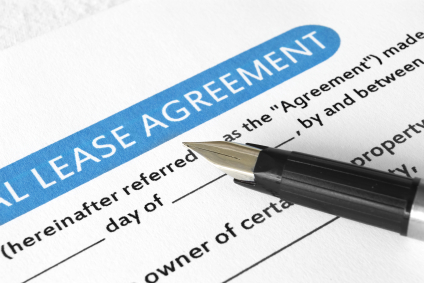Roles and Responsibilities
Clarify Rental Information

When people rent an apartment or house, they sign a lease with the landlord to become tenants. The lease is very important because it is the agreement that describes what each party can expect of the other. It is important to understand and be willing to accept everything in a lease before signing it.
Work with individuals to be aware of three especially important provisions in the lease:
- For participants who are non-readers, please read aloud each section of the lease, property rules and other documents so you may discuss them fully.
Click each button to learn more. Then click Next to continue.
Important Lease Provisions
Rent, Form of Payment and Length of Occupancy
Responsibility for Utilities
Rules and Responsibilities for Living in the Home
Rent, Form of Payment and Length of Occupancy
The lease specifies that the tenant will:
- Pay a certain amount of money (rent) each month (sometimes each week) to stay in the property.
- Agree to the arrangement for a certain length of time (often one year).
The lease also gives the tenant certain important information about:
- The date rent is due.
- What happens if the tenant is late with the payment (sometimes a penalty must be paid).
- Where the tenant should send or deposit the check.
- Whether the tenant must pay a deposit for damages that may happen to the home.
- How the landlord determines the damage.
- How the security deposit will be returned.
The tenant should always:
- Maintain a record of payments. A checking account is one way of keeping a record of payment. If the rent is paid in cash, a receipt should be obtained from the landlord. (Most landlords, however, prefer or even insist that rent be paid by check.)
Responsibility for Utilities
Before moving in, tenants should understand which utilities are their responsibility. Utilities include gas for heating and cooking, electricity, water, garbage collection and cable TV. Reasons to account for utilities are:
- Utility costs should be considered in addition to the rent during the person-centered budget planning.
- When utilities are not included in the rent, the service must be transferred to the tenant's name, and the tenant pays an installation cost and deposit.
Keep in mind that:
- Transitional services can help with utility deposits.
- Some people may qualify for ongoing assistance with energy costs from community organizations and/or utility companies.
Rules and Responsibilities for Living in the Home
Landlords can set certain rules about their buildings to protect their property and the safety and comfort of all residents. Landlords can establish rules regarding:
- The number of people who can live in the place.
- Noises that may disturb other people.
- Pets.
- Maintaining the cleanliness and appearance of the place.
The tenant should be aware of additional rules before renting a house or apartment. If an individual questions any rule or its interpretation, it's always better to ask before any conflict develops with the landlord. It's also important to remember that tenants have rights too. The Fair Housing act prohibits discrimination against people because of race, age, religion, gender or disability.